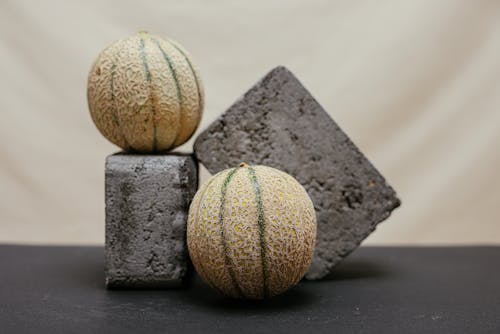A fridge or refrigerator is a must-have item in a modern kitchen. By reducing the growth of bacteria, molds, and yeasts that cause degradation of food, they aid in the preservation of food. Perishable foods like meat, dairy, and some fruits and vegetables can remain fresher for longer thanks to the refrigerator’s low temperature, ensuring food safety and minimizing food waste. So dudes, let’s have a detailed discussion on the benefits of refrigeration and things you shouldn’t be putting in your fridge.
Benefits of using Refrigerators

Food Preservation
Perishable food items have a longer lifespan when stored in refrigerators because they keep food at a constant low temperature of about 37°F (3°C). This helps stop the development of dangerous bacteria that can result in infections caused by food.
Convenience
The ability to store a wide range of goods in your refrigerator facilitates efficient meal planning and preparation. You can stock up on food in large quantities, freeze leftovers, and maintain cold, refreshing drinks.
Nutritional Value
Foods with proper refrigeration retain a more nutritious content since it slows down the deterioration process. When properly stored, fresh produce, dairy goods, and fruits keep their vitamins and minerals.
Cost saving
Refrigerators save money and lessen food waste by extending the lifespan of food. Take advantage of deals and buy perishable goods in large quantities without having to worry about them going bad too soon.
10 Foods to Never Put in the Fridge
While many goods must be kept fresh in refrigerators, not everything should be kept there! Certain foods lose flavor or spoil more quickly in the refrigerator. These ten items are not fit for the refrigerator.
Bananas

Because of the change in their natural ripening process caused by the cold, bananas in the refrigerator become mushy and discolored. The texture gets unpleasant and the skin can turn dark. The banana’s cell walls break down more quickly when it is refrigerated, giving it a mushy consistency.
What to do instead?
Bananas should be kept on the counter at room temperature. Peel and freeze ripe bananas in a ziplock bag if you can’t consume them straight now. You may bake or make smoothies with frozen bananas.
Tomatoes

Tomatoes get mealy and lose flavor when refrigerated. The tomato’s taste and texture are altered by the cold, which tears down the tomato’s internal cell membranes. When tomatoes are refrigerated, they can lose their luscious, sweet flavor and acquire a gritty texture.
What to do instead?
Tomatoes should be kept out of direct sunlight in a dish on the counter. This enables them to mature further and fully develop their taste. You can use them to make soups or sauces if they get too ripe to waste.
Bread

In the refrigerator, starch retrogradation, the process by which starch molecules crystallize – is accelerated by the low temperature, which causes bread to become dry, stale, and hard. Bread loses its delicate feel and goes stale more quickly as a result.
What to do instead?
Store bread in a cool, dry area or a bread box. Freeze it in an airtight bag if you need to preserve it for a longer amount of time. The slices can be toasted straight from the airtight keeper or reheated at room temperature when you’re ready to use them.
Potatoes

Potatoes get a sweet taste and a grainy texture when their starch is converted to sugar by low temperatures. Additionally, when they cook, this may cause them to darken, which will change how they look and taste.
What to do instead?
Potatoes should be kept in a dark, cold, and well-ventilated area, like a pantry or cellar. The optimal temperature range is 45–50°F (7–10°C). Potatoes can deteriorate more quickly if they are stored close to onions because of the fumes and moisture from the onions.
ALSO READ
10 Things You Should Never Put in the Microwave Oven
Onions

The moisture in the refrigerator causes onions to become mushy and moist, which promotes the growth of mold and accelerates their deterioration. Onions go mushy because of moisture absorption from the chilly, humid refrigerator.
What to do instead?
Onions should be stored in a cold, dry, and well-ventilated space. A counter basket or a pantry would be ideal. Ensure that they are kept in a manner that permits air to circulate, such as a basket or net bag. To keep them fresher longer, keep them away from potatoes.
Garlic

In the refrigerator, the moisture and cold enables garlic to sprout early, which makes it rubbery. This may cause the garlic to taste bitter and unpalatable.
What to do instead?
Garlic should be kept in a cool, dark pantry or mesh bag with plenty of airflow. The optimal temperature range is 60–65°F (15–18°C). This will extend its shelf life and preserve its flavor.
Honey

In the refrigerator, honey crystallizes and gets gritty. Honey may become hard and granular due to the sugars crystallizing due to the chilly temperature.
What to do instead?
Store honey at room temperature, properly sealed. Because honey has natural preservatives that keep it from going bad, you can safely keep it on a shelf or in your cupboard. If over time your honey crystallizes, you can dissolve the crystals by gently warming the jar in a dish of hot water.
Coffee

Coffee grounds or beans that are kept in the refrigerator tend to absorb moisture and smells from other food, ruining the flavor. Additionally, the coffee may become stale faster as a result of the moisture.
What to do instead?
Coffee should be kept in a cool, dark place like a pantry or an airtight container. To keep its flavor and freshness, keep it free from moisture, heat, and light. Because whole beans keep their freshness longer than pre-ground coffee, you might want to grind your coffee only as needed.
Olive oil

In the refrigerator, olive oil becomes muddy and hardens. Its uniformity may be impacted by this, making pouring challenging. The fats in the olive oil melt in the cold, but the oil itself is unaffected by this.
What to do instead?
Olive oil should be kept in a dark, cool cabinet. To keep it from getting rotten, keep it firmly wrapped. While 57°F (14°C) is the ideal temperature, regular room temperature will do as long as it is kept out of the direct sun and other heat sources.
Melons (Uncut)

When kept in the refrigerator, whole melons lose flavor and nutritional value. Their normal ripening process may be hampered by the cold, making the fruit less palatable and nutrient-dense.
What to do instead?
Whole melons should be kept on the counter at room temperature. To keep the pieces fresh after cutting, place them in the refrigerator. To keep the chopped pieces from drying out, wrap them in plastic wrap or store them in an airtight container.
Conclusion
Modern food storage relies heavily on refrigerators. Not all foods, though, benefit from refrigeration. By keeping certain foods out of the refrigerator, you may preserve their freshest flavors and textures without having to worry about them going bad too soon. These ten things will keep tasty and fresh for a longer time if you store them correctly. Cheers to a delicious meal!
FAQs
Is Fridge food healthy?
Food may lose its nutritious content if it is stored for a long period before being eaten. Additionally, it could result in some issues like indigestion or food poisoning.
Should you keep dairy products in the fridge?
Dairy items are best kept near the top of the refrigerator since they are ready to eat. You should always check the storage directions for foods like butter, milk, and cheese to see when the manufacturer says you should consume them because different items can be left open for different periods.
Can you put hot food in a fridge?
You can store hot food in the refrigerator. To speed up the cooling process in the refrigerator, divide large quantities of food into smaller portions and store them in small containers.

Hi, My name is Asad Rafique. I’m a Doctor of Medicine and Clinical Pharmacist, got graduated from Rashid Latif Medical College, Lahore Punjab. I’m currently working as a full-time Doctor at Horiozn Hospital, Lahore, and a Clinical Pharmacist at the National Hospital and Medical Centre, Lahore. I’ve 3 years of experience as a Medical Healthcare Professional. Since April 2023, I’ve been acting as a spokesperson and mentor with a group of Doctors in seminars and webinars around different areas of Punjab.

